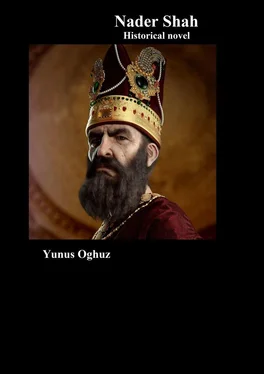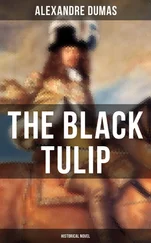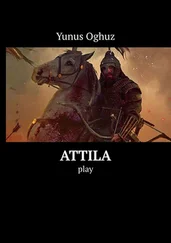The Shah thought a little and then asked surprisingly:
– Isn’t it a lot, Nader khan?
– It isn’t enough yet, Your Majesty!
– Isn’t enough?!
– Yes, Your Majesty!
Tahmasb Shah said in surprise:
– Make yourself clear, Nader khan!
– Your Majesty, are you pleased with the present army that I have set up?
– I am pleased, it is a disciplined army, they fultill their orders without question, and they are ready to sacrifice themselves…
– Do you want the troop trice more than that army?
– Who wouldn’t wish to have such kind of disciplined troops, Nader khan?
I felt that I was able to make the Shah believe me.
– For that reason I want Mazandaran, Khorasan and Kirman. In those cities, I shall also set up spare military units, because in any battle, somebody dies or is wounded. I need spare forces in order to replace the dead or wounded ones. Then…
Tahmasb Shah interrupted:
– What.then?
In fact, I didn’t want to tell him that secret, but I told him:
– Then. Your Majesty, in order to prepare the spare army money won’t be spent from the Shah’s treasury. All the expenses will be paid on account of the provi nces that you gave me. To my mind, the Shah didn’t realize the main essence of my words, but knowing that there won’t be the expenses he said:
– You made me believe, Nader khan!
– Your Majesty, it isn’t all!
Tahmasb Shah asked anxiously:
– Which other provinces do you want?
– I don’t want any provinces, Your Majesty!
– But what do you want?
– Your Majesty, I want to say that after suppress- ing the disturbance within the country we have important affairs before us.
– What affairs are left?
Your Majesty, half of Azerbaijan has been invaded by the Ottomans and the Russians. Apart from those invading groups they have also a reguiar army. Starting from today we must prepare to free those places.
The Shah stood at the window Crossing his arms on his chest and thought for a while:
– You are right, Nader khan! – At last he said. – You made me believe and I agree to those three provinces being under your ascendancy.
Just there the Shah signed an order about it and gave it to me. In my turn, I wrote letters to those provinces and sent them with my compani ons in order to inform them
what to do.
Before us was the task of occupying Isfahan.
On 12 thSeptember 1729 Tahmasb Shah, the mullabashi and I went out of the city and directed them from Nishapur towards Sebzever. We had an idea to free Sam van which was encircled by Ashraf. Ashraf hims elf had started to move towards us. Ashraf’s warlord Muhammad khan Seid’s efforts to get my cannons resulted in failure. In spite of it in Damghan the main armies of Muhammad khan Seid and Ashraf khan combined and they were preparing for a decisive fight. I went a little forward and placed my army in the place called the river of Mihmandust.
In the morning of 29 thSeptember the fight began. I lined up my fighters and placed the cannons around them. I had resolutely ordered all the fighters not to move during the attack of the enemies and not to shoot without my order. The Afghans attacked first with twenty thousand soldiers, at the centre, then they tried to get superiority in the flanks. I had ordered my troops to shoot at them with rifles so that the bullets would to reach the enemy and render them harmless. As usual, my groups of troopers were on the other bank of the river and were waiting for the agreed sign…”.
…The two soldiers who were standing in the centre and had newly returned from training looked worried. It was the first time that they had taken part in such a kind of big battle. The Afghans were at the fifty steps’ from the Qizilbashs. They were not ordered to begin fighting yet.
The first soldier said anxiously:
– Look here, these Afghans have come much nearer. We must fight.
The second soldier:
– Hi, don’t make noise, have patience!
– How long can I have patience? I am terribly frightened, as if my heart will stop beating! Must we wait for the enemy come and kill us?
– Hi, didn’t you hear the words of our military leader?
– What did he say?
– He said that Nader khan had ordered thus. If somebody leaves the row without order or leaps into the fight he will be personally executed by Nader khan himself.
The Afghans reached within fifty steps of the Qizilbashs. They were kicking up a roar. Their noises could be heard all around the river of Mihmandust. The Qizilbash did not speak or even stir.
Again the first soldier:
– Look here, why aren’t we ordered to begin fighti ng?! Honorable death is better than being executed.
The second soldier:
– Hi, keep silence, now the fight will begin.
When the Afghans were at thirty steps, the drum sounded; fire was shot from the rifles and all around us it was impossible to see because of the smoke. Most of the Afghans who were coming in the first row were lying on the ground. Some of them were groaning, the others were between life and death....In spite of all had happened they continued fighting. At that time of the drum sounding fire was shot from the small cannons too…
“I felt that the fight was going to finish in our favor. I ordered our long-range guns to ruin the enemy’s cannons. Our artillery men showed their abilities and within a short time all of their light cannons were destroyed. I called one of the skillful artillery men, Shamsaddin bey:
– Can you shoot at the Afghan soldier who is carrying the banner?
He put his hands on his brows and measured the dis- tance by his eyes:
– I can, my khan! I can even make his mother shed tears on his dead body!
– Look here, now it depends only on you to set up confusion among the Afghans.
The artillery man Shamsaddin bey;
– If it depends on me, just a moment, my khan! -He said and ran towards his cannon.
The soldier who was carrying the banner was guarded by some Afghan fighters. According to the fighting rules of that time if the banner fell on the ground that meant it was the beginning of a defeat. Willingly or unwillingly the fighters begin to get confused and started to retreat. That was why Ashraf Shah had ordered the soldiers to guard the soldier carrying the banner, so as not to let the banner fall on the ground…”
Just at that moment, the Qizilbashs were ordered to begin the fight. One part of the Qizilbashs broke the rows of the enemy and tried to approach the soldier who was carrying the banner. The fight became more ruthless. The Afghan soldiers were fighting more bravely despite the fact that their rows had become thin. They were also guarding the soldier who was carrying the banner and they laid obstacles in the way of the Qizilbashs who moved towards him. The soldier who was carrying the banner was waving the banner in order to stir up the anger of the enemy. At times he shouted, as though he was abusing the enemy or teas ing them. Suddenly the att ack threw the soldier back who was carrying the banner. He looked at his belly with the banner still in his hand. A small cannonball had torn his belly. After a moment he could feel nothing. One of the Afghan soldiers was able to catch the banner while it was falling on the ground. The second cannon-ball broke the wooden holder and material of the banner. The Qizilbashs had already reached the banner. The Afghans who saw that their banner wasn’t waving any more began to withdraw their troops.
“…I won that fight. The Afghans withdrew their troops. My brother Ibrahim khan asked me to permit him to follow the running Afghans, but I didn’t let him, because we were not wholly ready for it. In that fight, the Afghans lost twelve thousand fighters but we lost about four thousand soldiers.
Читать дальше












